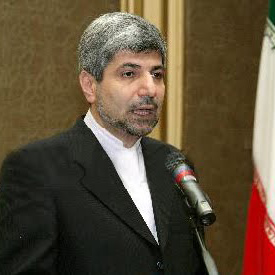Tehran would welcome a return to negotiations with world powers over its controversial nuclear programmes, Iranian Foreign Ministry spokesman Ramin Mehmanparast said Tuesday, DPA reported.
"We would welcome a return to the course of understanding if we witness a pragmatic approach (by world powers) towards our legitimate (nuclear) rights," he told reporters in Tehran.
On Monday, US Secretary of State Hillary Rodham Clinton said that the United States had not closed the door on negotiations with Iran in the nuclear dispute.
Iran last week rejected a deadline of December 31, 2009 set by the world powers for a uranium exchange deal.
The United States and the four other permanent members of the United Nations Security Council - Britain, China, France and Russia - as well as Germany, threatened Iran with new punitive measures if it did not accept a compromise deal by the end of last year.
"We've avoided using the term 'deadline' ourselves," Clinton said. "That's not a term we have used because we want to keep the door to dialogue open."
But while there was no deadline for a return to talks, Washington made it clear that its patience was limited, Clinton said. "We can't continue to wait and we cannot continue to stand by when the Iranians themselves talk about increasing their production of highly enriched uranium."
"Of course there is no deadline," said Mehmanparast.
According to a plan brokered in October by the International Atomic Energy Agency, Iran's low-enriched uranium was to be exported to Russia and France for further enrichment of up to 20 per cent and processing into fuel for a Tehran medical reactor.
The West has been urging Iran to accept the deal by the end of 2009, but Tehran rejected the offer, insisting that the uranium swap has to take place in Iran.
Clinton also said that Washington was consulting with other nations about new sanctions.
"We consider sanctions as a non-effective method, especially as we only follow our internationally acknowledged nuclear rights and have committed no violations," Mehmanparast said.
Iran says that as signatory of the Non-Proliferation Treaty and member of the IAEA, it has the right to pursue civil nuclear technology and would not allow world powers to deprive the Islamic state of this right for political reasons.
The West fears, however, that Iran is pursuing nuclear weapons. Tehran kept its nuclear work secret from the IAEA for almost two decades and failed to cooperate fully with the agency's inspectors.
Foreign Minister Manouchehr Mottaki had said that Iran would be ready to either purchase the fuel for the Tehran reactor, or make the uranium swap in three phases on the Iranian Gulf island of Kish.
Mottaki warned Saturday that the West had one month to accept the Iranian conditions otherwise Tehran would go ahead with the enrichment programme by itself.






